EUMAM MOZ receives visit of Swedish Delegation
UN praises fight against drug trafficking in Mozambique
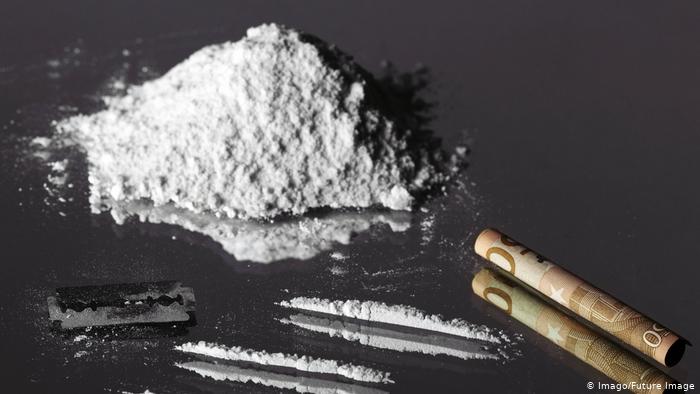
File photo: DW
- United Nations Office on Drugs and Crime (UNODC) representative in Mozambique, César Guedes, says that recent seizures of heroin in the north and off the coast of Mozambique show that the authorities are “more effective”.
In July 2020, the United States identified drug trafficking off the coast of Mozambique as the main source of funding for terrorist networks.
“If we have seizures, it is good news: it means that the authorities are – with international cooperation – doing a more accurate, more dedicated, more professional job,” Guedes told Lusa in an interview.
At the end of January, a French navy frigate seized 444 kilos of methamphetamine and heroin in a dhow in the Mozambique Channel, where France has some islands. The drugs were valued at more than €40 million. At the same time, Mozambican police detained a man in possession of 61 kilograms of heroin and five kilograms of methamphetamine in Nacala Porto, in the province of Nampula.
Last week, on Tuesday (02/02), the authorities arrested a businessman in the city of Pemba, in the north of the country, in possession of 180 kilograms of ephedrine, a substance believed to be destined for the manufacture of drugs.
These seizures “clearly” show that “Mozambique is not alone in this fight, and [has] the support of countries that have the common agenda” of fighting drug trafficking, Guedes said.
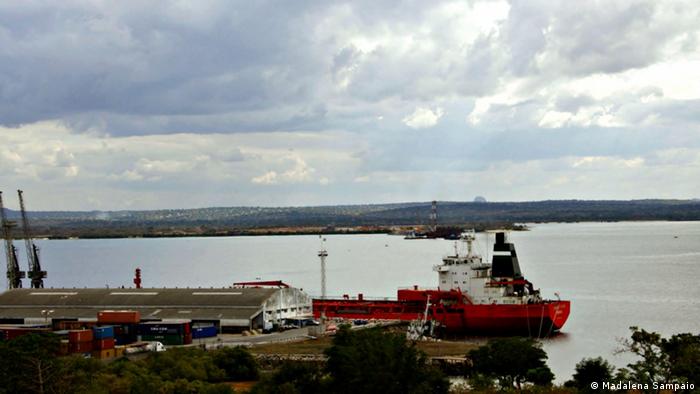
Role of international cooperation
International cooperation, plus the training and assistance provided by UNODC “are paying off”, according to Guedes.
Guedes highlighted the traffickers’ propensity for southwestern Indian Ocean as a “reliable” and “predictable” route, despite being the longest to northern hemisphere markets. Mozambique has the longest coastline between Somalia and South Africa and offers land connections to several countries on the way to the drugs’ final destinations.
All of this in a context in which Afghanistan is experiencing heightened instability, and nations to the north of Mozambique – Tanzania and Kenya – have been repelling organised crime from their shores, forcing traffickers to look for entrances further south.
“The greater the instability in Afghanistan”, the more the drug trade is seen as a “business alternative” in a country responsible for 85% of the heroin circulating on the planet, and almost 100% of the ephedrine of plant origin, and this is reflected on the Mozambican coast.
The answer in Mozambique is a coordinated effort, part of “the ‘ABC’ of international cooperation” because “no country can face these dynamics alone”, Guedes stresses.

“Motivated authorities”
Guedes says that there are clear signs that the Mozambican authorities are motivated to combat drug trafficking, and are open to cooperation, as well as institutional capacity building, which is a priority for UNODC.
Mozambique has specificities: it is also rich in wildlife, gems and precious stones and rare woods that give rise to other trafficking networks which are sometimes interconnected with drug trafficking.
They are “two sides of the same coin”, Guedes says. Sometimes, a vessel that bring drugs to Mozambique returns with cargoes pillaged from the country’s natural resources.
UNODC opened an office in Mozambique in 2019 at the request of the government, after having opened similar missions in Bolivia and Pakistan, one of the countries from where boats set out across the Indian Ocean loaded with heroin and bound for Mozambique.
In terms of regional cooperation, Maputo will this year see a tripartite maritime security office, shared with South Africa and Tanzania, established in partnership with UNODC. It will be a consultative and experience-sharing body, aiming to strengthen surveillance over the southwest Indian Ocean.


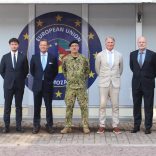
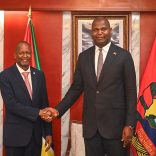
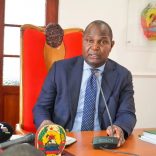
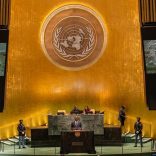
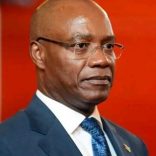





Leave a Reply
Be the First to Comment!
You must be logged in to post a comment.
You must be logged in to post a comment.